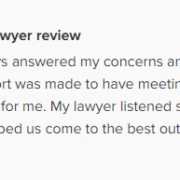Bird Custody: What Happens To Our Pet In Divorce?
When a couple has children, and they are getting divorced, they set up a child custody schedule to determine where their children will sleep at night. But what happens when spouses have a bird? Will a Tampa Bay divorce judge set up a “bird custody” schedule?

Bird Custody
No, a judge will not create a bird custody schedule, but a couple can agree to such a schedule through a private form of dispute resolution such as collaborative divorce.
Birds, like dogs, cats, hamsters, bunnies, and other animals, are seen as personal property under Florida divorce law. And just like other personal property (lamps, furniture, computers, etc.), a judge does not have the authority to create a schedule. Rather, under Florida’s “equitable distribution” scheme, a judge only has the authority to give a bird to one spouse or the other.
However, divorcing spouses can agree to a bird custody schedule, and that agreement can become legally enforceable. One of the best ways to reach this agreement is through the collaborative divorce process.
In collaborative divorce, each spouse is represented by his or her own attorney. However, unlike typical divorce lawyers, the collaborative attorneys agree that they will only participate in out-of-court dispute resolution. In practical terms, this means that no time, energy, or money is spent on fighting in court, or even preparing to fight in court.
This also means that the collaborative attorneys are open to creative solutions for their clients’ issues, including bird custody schedules.
If you have questions about how you can get through divorce privately via the collaborative process, schedule a time to sit down with Adam B. Cordover by calling us at (813) 443-0615, or CLICK HERE to fill out our contact form.
Adam B. Cordover is an international leader in collaborative practice and teaches attorneys, psychologists, licensed mental health counselors, social workers, financial planners, and accountants how to offer collaborative services. Further, Adam is co-author of an upcoming American Bar Association book on collaborative law.



